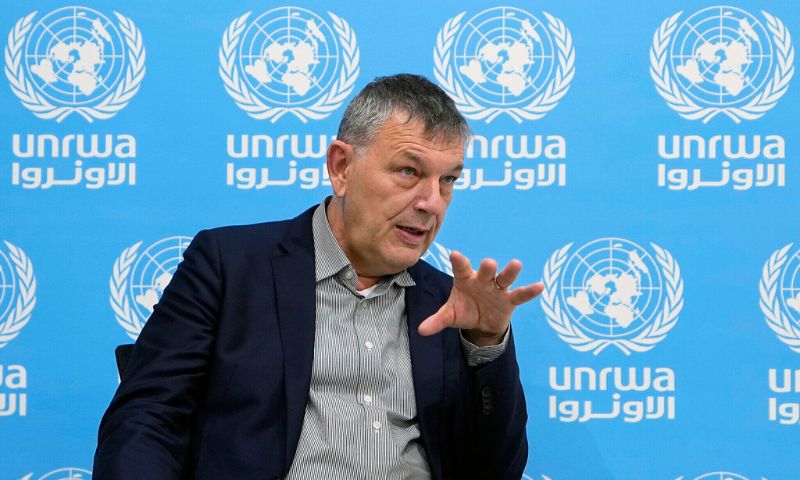BERLIN: The head of the United Nations Relief and Works Agency (UNRWA) for Palestinian refugees on Wednesday warned of the risk of famine in Gaza as the territory faces critical shortages of food and humanitarian aid, a day after the United States said Israel had been warned to improve aid deliveries to the territory.
Speaking at a press conference in Berlin, UNRWA Commissioner-General Philippe Lazzarini said there is a “real risk” that famine or acute malnutrition could soon affect Gaza’s population, particularly with winter approaching and immune systems already weakened.
“There is a real risk today… that we enter a situation where famine or acute malnutrition is unfortunately again a likelihood,” Lazzarini said.
Lazzarini highlighted the deteriorating situation in Gaza, saying vast areas of the Palestinian enclave have been turned into a “wasteland” that is becoming “almost unliveable.” The northern part of the besieged territory has faced intensified Israeli military operations, leaving hundreds of thousands of people trapped, according to the United Nations.
Lazzarini emphasized the severe shortage of humanitarian aid reaching the region. “Over the last two to three weeks there was no convoy entering into the north except yesterday,” he said.
Despite these limited deliveries, the number of convoys is far below what is needed, with an average of just 50 to 60 trucks serving Gaza’s two million people, while the actual requirement is significantly higher.
Lazzarini also pointed out that aid convoys, when they do arrive, are often looted due to the “total breakdown of law and order” in Gaza. However, he stressed that the looming hunger crisis could still be averted if appropriate measures are taken to ensure regular and sufficient aid deliveries, especially food.
“We have shown that we can have a polio campaign, so why can we not bring food?” Lazzarini questioned. He urged for immediate and sustained access to Gaza to prevent a humanitarian catastrophe.
The US State Department said that Secretary of State Antony Blinken and Defense Secretary Lloyd Austin had sent a joint letter to Israel, making it clear that more aid must reach the besieged territory. The letter emphasized that the current low levels of assistance were inadequate and that changes were urgently needed.























